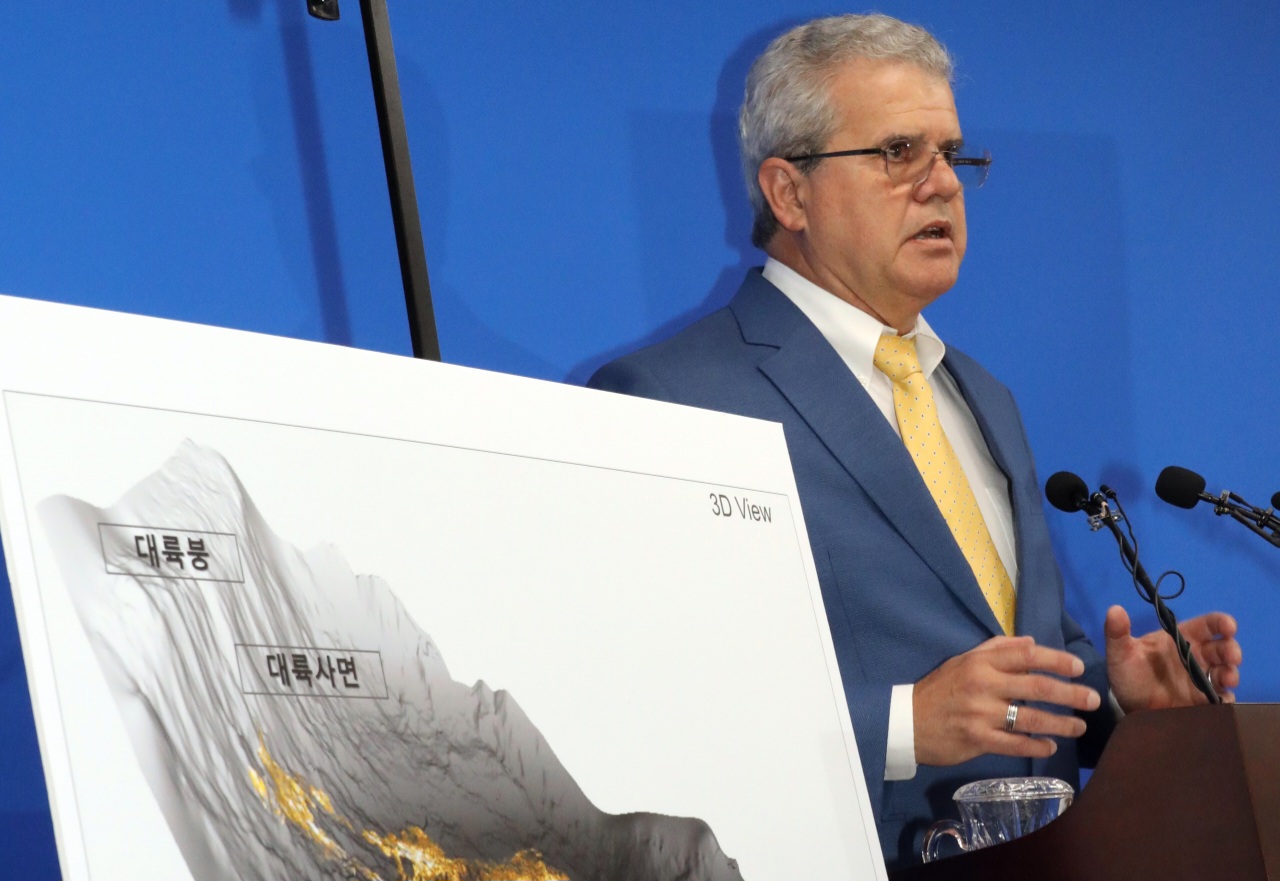SEOUL (ANN/KOREA HERALD) – According to Vitor Abreu, owner and adviser of the US geoscience research firm Act-Geo, seismic data indicates that the oil and gas reserves in the East Sea are “highly prospective,” as the examined wells contain all four key elements of a petroleum system.
Act-Geo, the company that proposed significant oil and natural gas deposits near Pohang’s Yeongil Bay, conducted the research.
“So to summarise…the basin is highly prospective,” Abreu said during a press conference held at the Industry Ministry in the Sejong Government Complex.
“Not only that, the early results are already (drawing the) attention of important international companies.”
Abreu said they studied the three existing wells previously drilled as part of the Korean East Sea oil exploration project, to identify why they failed to provide convincing evidence of oil and gas reserves. From their findings, they were able to identify seven new wells that hold high potential for the oil and gas deposits.

“Our new analysis, using advanced 3D seismic data from KNOC, has revealed a total of seven well prospects, including the three existing wells,” he said.
A prospect in this context refers to a geological feature or formation that has the potential to contain hydrocarbons, such as oil and gas.
According to Abreu, the seven prospects are found to contain the four geological factors indicating the existence of gas and oil: reservoir rock, seal rock, trap and source rock.
Advanced 3D seismic data has provided a clearer and more detailed subsurface picture, addressing the shortcomings of the previous 2D data used in the three wells previously explored, the adviser explained.
On the estimated success rate of 20 percent, Abreu said it is a “very good” figure, noting that the comparable figure for a project in Guyana, which had 4 billion barrels, came to 16 per cent.
“The biggest (oil) discovery in the world in the last 20 years or 25 years is the Liza prospect in Guyana. I participated in that well to drill that well when I was working for ExxonMobil. The expected success rate of that project was 16 percent for 4 billion barrels of recoverable oil,” he said.
At the same time, Abreu cautioned risk.
“Don’t get me wrong. It is still risky,” Abreu said. “There’s an 80 per cent chance they do not work.”
“If there was one prospect out there, I probably wouldn’t want to drill it,” he said. “If I have five that look like that one, I will find oil in one of them. So far, we have seven.”
Actual drilling is the only way to confirm the presence of hydrocarbons, he continued.
Abreu, who arrived in Seoul on Wednesday, was joined by Korean officials in the press conference, including Head of Energy Policy Lee Ho-hyun from the Ministry of Trade, Industry and Energy, and Kwak.
The press conference was organised to clarify the Korean government’s recent announcement regarding the company’s survey result on the potential reserves.




